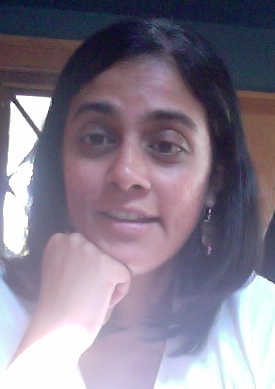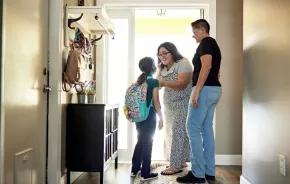 Each winter, parents of 2, 3 and 4-year-olds find themselves in the midst of decisions regarding their child's first preschool. The search for the best preschool environment can often be daunting. It invites all kinds of questions: What do I want? What does my child need? How will we find the right fit? How do I know when I have found it?
Each winter, parents of 2, 3 and 4-year-olds find themselves in the midst of decisions regarding their child's first preschool. The search for the best preschool environment can often be daunting. It invites all kinds of questions: What do I want? What does my child need? How will we find the right fit? How do I know when I have found it?
Here are some tips on the key aspects to consider when choosing a preschool.
Relationships with teachers
Preschoolers learn best through stable, attentive, and growth-promoting relationships. These relationships affect virtually all aspects of their development — intellectual, social, emotional, physical, behavioral, and moral. In an environment of relationships, children have ample opportunities to communicate, play and work with each other. Teachers collaborate to create a rich learning environment that is safe, stimulating, and responsive to children’s needs. They do this by being inquirers, curious about children and seeing them as interesting beings. Parents are welcome in the classroom — to share, observe, and partner with teachers. Administrators support teachers by providing resources and time for planning.
Cognitive development through play
Play and learning cannot be separated. A child’s play is hard work. In play, children learn about themselves, they lay down essential cognitive, social, physical, and emotional foundations, and they gather skills. They learn about themselves as thinkers, collaborators, problem-solvers, friends — all essential ways of thinking and being. Children who engage in child-initiated play of long duration in carefully crafted environments are shown to develop greater language skills, better social skills, more empathy, and more imagination. They are strong problem-solvers and are able to make connections between seemingly disparate pieces of information. Such play is made possible through the use of open-ended materials that invite imagination and creativity. Open-ended materials can be used in many ways and don’t result in one right answer.
Administration and professional development for teachers
Teacher satisfaction and retention have significant impact on the quality of care and education in preschools. Teachers are satisfied in environments in which their work is valued through equitable pay, supported with professional development, and maintained at a high standard of quality through collaboration with peers and master teachers. Teachers’ growth through ongoing professional development and training is more critical than already acquired education and skills. A teacher is more invested in the curriculum if she has a voice in developing it. In high-retention environments, administrators have elevated expectations of their teachers and provide them with growth opportunities.
The physical environment
Preschoolers are explorers. They learn best in an inviting, safe, engaging environment that they can manipulate easily. They learn from their environment — the physical space itself — just as they do from the people around them. An inviting space is child-friendly, with not only furniture at the height of the child but with open spaces that allow for exploration and creation. The physical space defines the domestic nature of daily life in the preschool classroom. A physical space that responds to the rhythms of children and the dynamic nature of the day makes children feel safe.
I hope these ideas offer you food for thought and move you to a greater level of clarity in your search. Ultimately, remember not to over-analyze your choice. Let your gut, your heart, and your head be equal guides.
About Anoo Padte, Art of Education
Anoo is an education coach who believes that effective education stirs a child’s innermost being, setting a path to lifelong learning and growth. Anoo builds on this foundational goal by paying close attention to family values, the needs and passions of each child, and the changing nature of education in the 21st century. Learn more about Anoo Padte at: artofeducation.net.











